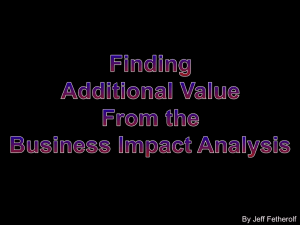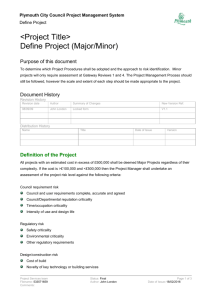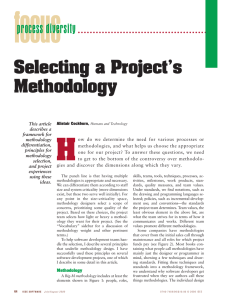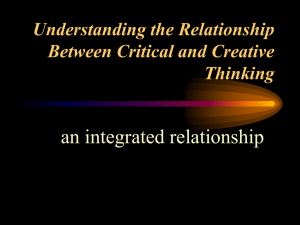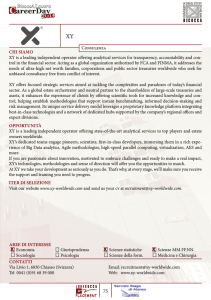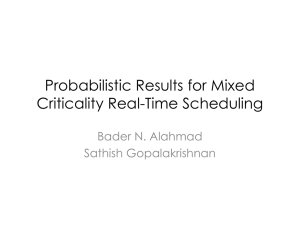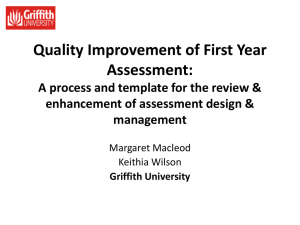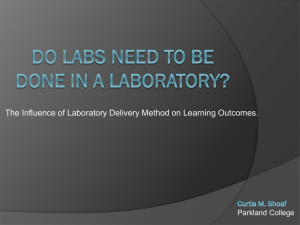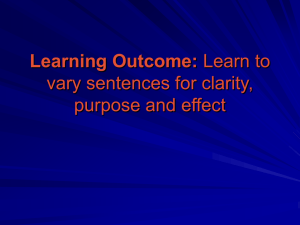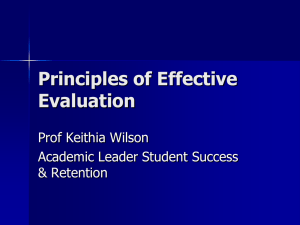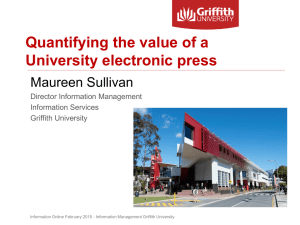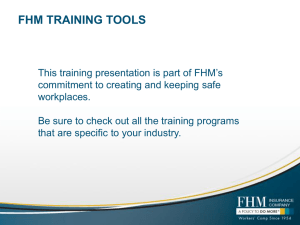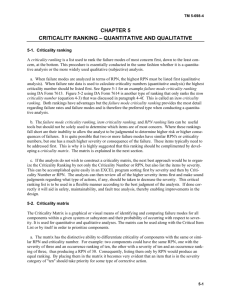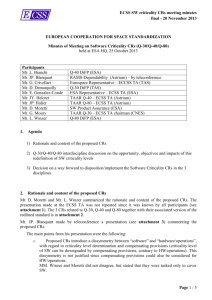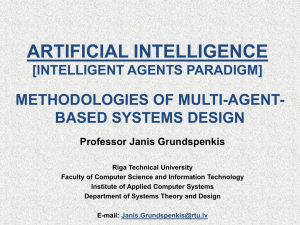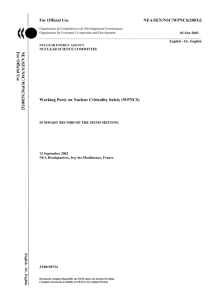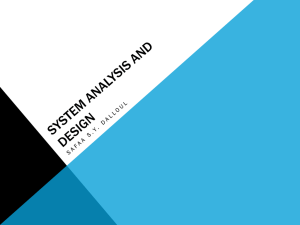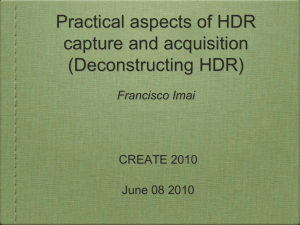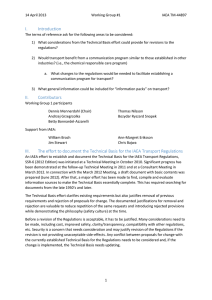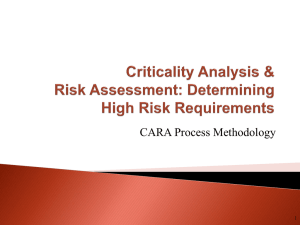critical - Griffith University
advertisement
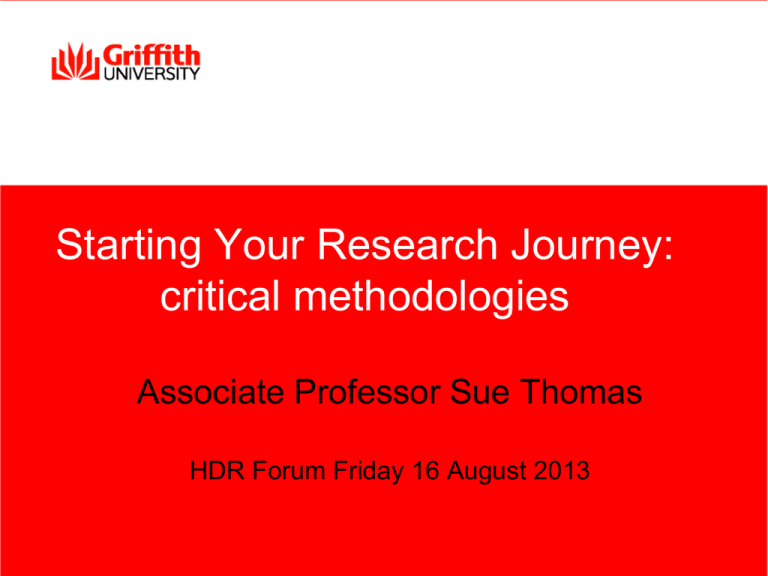
Starting Your Research Journey: critical methodologies Associate Professor Sue Thomas HDR Forum Friday 16 August 2013 Starting Your Research Journey • Research is a journey, a process that is characterised by: – Wanderings – Dead-ends and false starts – Difficulties – Writing blocks – Pleasures and surprises – Excitement and challenge • A dissertation can be thought of as a building, a solid piece of work: – coherent – develops an argument – proves a point – where each chapter builds on the one before. A Journey or a Building? The Island of Research • • • • • • • • • • City of Hope Jungle of Authority Problem Mire Bay of Literature River of Words Bog of Lost Manuscripts Rewrite Trail Know-it-all Sea of Theory Where-am-I Fog • DDD Delta of Dirty Data • Data analysis Jungle • Data Fever breeding ground • Canyon of Despair • Ridge of Boredom • Mount Where-are-we-going • Serendipity Mire • Pinnacle of Dogmatism • Bay of Leisure Research Diaries • Research diaries can be used by the rent/record of the research. They can capture: – – – – Moments when you are asking questions Your engagement with problems and issues The development of solutions Moments of decision about research design or analysis – Reflections about experience Source: Wisker (2008) Research Diaries • Research diaries should include: – What you do, and where, how and why you do it. Include dates. – Notes on what you read – Particular achievements, dead-ends and surprises – What you think or feel about what is happening – Any thoughts that may be relevant to your research Source: Cryer (2006) • • • Sally’s diary When I began this study, I had little idea about how I might go about it. I had vague notions of exploring how diagnoses are constructed by health professionals. This was based on my past experience of having a psychiatric liaison role with an Accident and Emergency Department. (Silverman, 2005, p. 25) Simon’s diary It was with these issues in mind that I happened across parents’ evening data. At the time my partner was a relatively new primary school teacher, and her exposure to the realities of parents’ evenings led to her assertion that such meetings had not been directly addressed within her teacher-training course. This difficulty with parents’ evenings from the teacher’s perspective chimed with further anecdotal information from my own parents, whose experience of such meetings tallied with the ‘public relations’ exercise view outlined by Baker & Keogh (1995:264) (Silverman, 2005, p. 35) Emily’s diary Clough and Nutbrown (2007: 27) talk about choosing methods, and say that selecting which methods to use indicates a particular ‘take’ on the world and how it operates. I can go along with this because though I say that interviewing is the only way, it’s not really… Where does that get me with discussing my methodology? (Clough & Nutbrown, 2002, p. ix) Identifying a Research Topic • What makes your eyes light up i.e. what are you passionate about? • Does it make a difference i.e. is it worth your while to spend time investigating this issue? • Is it a brick or a wall (not a brick but a line of bricks) i.e. will your investigation result in an outcome? Strategies to help you READ LISTEN CONGREGATE with birds of a feather Support • School – Student academic partners scheme – Directors – Griffith University Speakers Group – HDR Meeting – HDR Support Site • GIER – Mentoring – Student groups – HDR Work-in-Progress Seminars – Research Methodologies Laboratories • The Griffith Social and Behavioural Research College – Research training workshops Research Methodologies Laboratories • Critical methodologies research group Sue Thomas • Transcript analysis group Rod Gardner • Narrative analysis Susie Garvis • Quantitative methodologies special interest group Helen Klieve/Marleen Westerveld Critical Methodologies Research Group We are a group of scholars interested in the use of critical research methodologies in the broad and eclectic field of educational research. We draw on, and bring together, ideas, concepts and understandings from areas such as – – – – – – – critical cultural studies, critical pedagogy critical media studies critical discourse theory, including CDA critical policy studies sociology of knowledge actor network theory. Guiding Questions We have identified two questions to facilitate collaborative conversations about criticality within and beyond the group: • What does it mean to do critical educational research at this time and in this place? • How can criticality be operationalised in our research projects? Goals • Build, maintain, strengthen and formalise a critical research culture at Griffith. • Populate an internal support network for Griffith critical researchers. • Facilitate collaborate conversations about criticality within and beyond this location. • Develop skills in methods used in critical research Criticality As a starting point, critical research “seeks to expose how relations of power and inequality, (social, cultural, economic), in their myriad forms combinations and complexities, are manifest and are challenged” (Apple, Wu and Gandin, 2009, p. 3). It seeks to engage in the process of repositioning in order to understand the experiences of disadvantaged groups and to act against the ideological and institutional practices that work to marginalise them. Our Meetings are… informal conversations that aim to provide opportunities both to extend our theoretical understandings of the critical lens (a sort of Dummies Guide to Critical Theory); to gain knowledge and skills in the application of critical research tools; and to develop our academic profiles. Conversations are kick started by one or more of the following: – – – – – sharing ideas and resources about criticality reading each others' papers as critical friends analysing data from members' projects planning joint research projects exploring the uses of social media Meeting dates for 2013 • Friday 23 August 1.30-3.30pm • Friday 4 October M10_2.23 1.30-3.30pm • Friday 1 November M10_4.13 1.30-3.30pm Join Us We welcome any who are interested in Criticality. We have a CRM organisation site in Learning@Griffith. Follow us on Twitter (@critresmet and #criticality@GU). We would love to see you at the next meeting. Please email Sue at s.thomas.griffith.edu.au to be added to the mailing list.
